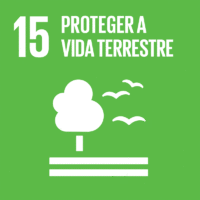Ciência_Iscte
Comunicações
Descrição Detalhada da Comunicação
Inequalities in Portuguese territories: an approach to local policies in urban and rural areas
Título Evento
XXVIIIth European Society for Rural Sociology Congress "Rural futures in a complex world
Ano (publicação definitiva)
2019
Língua
Inglês
País
Noruega
Mais Informação
Web of Science®
Esta publicação não está indexada na Web of Science®
Scopus
Esta publicação não está indexada na Scopus
Google Scholar
Esta publicação não está indexada no Overton
Abstract/Resumo
The Portuguese rural world no longer resembles the one described in literature. Mostly because people no longer live nor work there. Since the 1960s a huge rural exodus has resulted in a now irreversible depopulation of eighty per cent of the Portuguese territory, where less than twenty per cent of the population lives. Agriculture is no longer the main activity and new forms of occupation of rural areas have arisen. Farmers became brand managers and tour hosts and workers were replaced by machines. With depopulation, the agrarian landscape has been mostly transformed into leisure space or into places of nature conservation. Local government has played an important role in the development of attraction strategies for people, families and private companies. From rural tourism to the promotion of heritage, both material and natural, many public policies by the central government and the municipalities have been put in place in order to revert this trend or at least to try to provide services and possibilities for a better quality of life for the remaining few who still resist urban attraction.
However, a new reality has invaded the Southern rural landscape: associated with the use of water from dams, there has been a huge expansion of super-intensive fruits and olive monoculture. This new type of agriculture is a novelty in the Portuguese panorama and it places our country in a similar situation to raw material dependent economies. Farms are now owned and explored mostly by foreigners in an international trend for land grabbing, resource appropriation and excessive use of water, chemicals and technology. It causes environmental danger, genetic erosion and the end of biodiversity. And it does not benefit local populations nor create jobs, because it uses seasonal labour, mostly illegal immigrants. How do natural heritage and attraction strategies to rural areas cope with this new landscape?
At the same time, recently, as a result of insecurity in other areas of the world and with the prospect of quality of life and lower prices, there has been a huge boom in tourism and foreign investments in urban seashore cities, particularly Lisboa and Porto, which has risen real estate prices to the levels of the most important European capitals. This trend has grown to such levels that some tourism phobia movements have arisen, as there have been in Venice and Barcelona.
How has local government dealt with these novelties? What are the differences between projects and political programs for urban and rural municipalities? Attraction strategies of municipalities and private entrepreneurs are analysed and compared.
Agradecimentos/Acknowledgements
--
Palavras-chave
rural,urban,political messages,local government,atraction strategies
Classificação Fields of Science and Technology
- Ciências Políticas - Ciências Sociais
- História e Arqueologia - Humanidades
Contribuições para os Objetivos do Desenvolvimento Sustentável das Nações Unidas
Com o objetivo de aumentar a investigação direcionada para o cumprimento dos Objetivos do Desenvolvimento Sustentável para 2030 das Nações Unidas, é disponibilizada no Ciência_Iscte a possibilidade de associação, quando aplicável, dos artigos científicos aos Objetivos do Desenvolvimento Sustentável. Estes são os Objetivos do Desenvolvimento Sustentável identificados pelo(s) autor(es) para esta publicação. Para uma informação detalhada dos Objetivos do Desenvolvimento Sustentável, clique aqui.

 English
English




